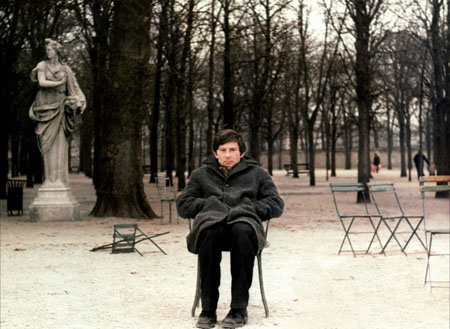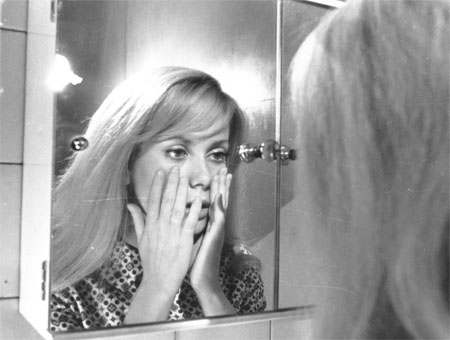The first part of the BFI’s two-month retrospective of the films of Roman Polanski is playing out throughout January, and in the Guardian, Leo Robson suggests that any hopes that it “will turn attention away from the glum key terms of Roman Polanski’s life (the Kraków ghetto, Manson, statutory rape) back to the riches of his work are based on false reasoning and certain to be dashed. To watch Polanski’s films is to be reminded of what produced their dazed brutality, those early experiences of the oppression of the weak that stole his innocence and distorted his sense of things. If ever there was a body of work on intimate terms with cruelty and domination, and steeped in a vision of men as cold-blooded and women as cold-hearted, this is it.”
“Whether this somewhat sobering worldview is played out as comedy, suspense, psychological horror, surreal fable or straightforward drama—or, indeed, as a fertile mix of several idioms—what distinguishes Polanski’s films is the expressive precision of his mise-en-scène,” writes BFI programmer Geoff Andrew. “His style has never been gratuitously flamboyant; even in the more expressionist moments of Repulsion [1965] or The Tenant [1976], he deploys distortion simply to evoke the workings of an unbalanced mind. Rather, it’s a question of his always knowing exactly where to place the camera and how it should move in order to tell us just as much as we need to know—about a character and their relationship to their surroundings and other people—at any given point in the story. Polanski’s sense of space—and place, for that matter—is as eloquent as his expertise with actors.”
“From Knife in the Water [1962] to Carnage [2011], via the bumpy and resplendent peaks of Repulsion, Rosemary’s Baby [1968] and Chinatown [1974] (films where the air is so rare and the artistry so impudent the spectator is left happily gasping), he excels at movies in the best sense maudits,” argues the Financial Times‘ Nigel Andrews, who thinks far less of, for example, The Pianist (2002), Death and the Maiden (1995), and “the ever so worthy, so pictorial, so insipidly literary” Tess (1979). “Mordant; blackly comic; wooing notoriety. Full of timor mortis, but never timor vitae. Movies about human beings traversing the mapless realm called life, that Hades-on-Earth where our ‘lostness,’ and the helpless, mad or volatile things it makes us do, would be tragic if not funny, or funny if not tragic.
Part One features extended runs of Repulsion and Chinatown, both of which are also now playing in British theaters outside of London. The Guardian‘s Peter Bradshaw heartily recommends both. Repulsion is “a deeply disturbing, horribly convincing psychological thriller that is also that rarest of things: a scary movie in which a woman is permitted to do the killing. Catherine Deneuve’s glassy stare of anxiety dominates the movie: it is like Janet Leigh’s empty gaze at the end of the Psycho shower scene. Polanski clearly took something from that movie, as well as from the chaos, squalor and mania in Joseph Losey’s The Servant (1963).” Adds Nicola Woodham at Electric Sheep: “To me his methods are Lovecraftian. By fragmenting and dislocating sound and image Polanski creates monstrous and unearthly reconfigurings of the banal.”
As for Chinatown: “What the passage of time has done for this superlative 1974 film is progressively lessen our sense of its being simply a modern pastiche of the classic 30s gumshoe thrillers,” writes Bradshaw. “The time-gap has narrowed, and it now looks like a classic in a direct line of succession to those earlier pictures.” The Independent‘s Anthony Quinn notes that “everything about Chinatown is memorable, starting with Robert Towne’s Oscar-winning script, Jack Nicholson’s most nuanced performance, Richard Sylbert’s exquisite production design, John A Alonzo’s burnished photography, Jerry Goldsmith’s tense, mournful score.”
For news and tips throughout the day every day, follow @KeyframeDaily on Twitter and/or the RSS feed. Get Keyframe Daily in your inbox by signing in at fandor.com/daily.





